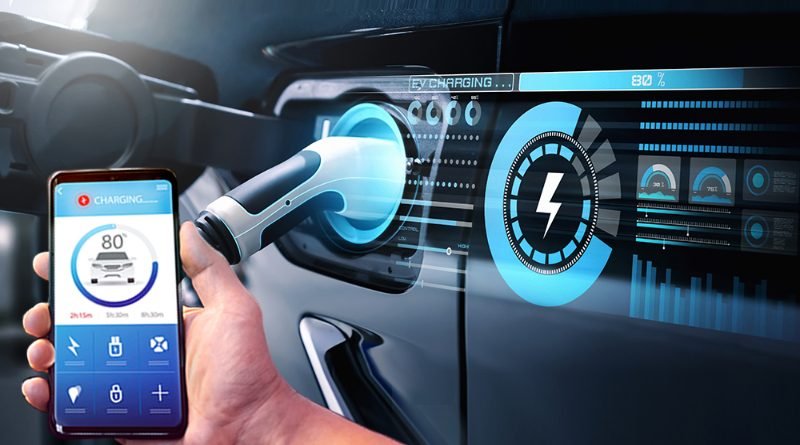Navigating the Future of Power: Smart Battery Solutions for Enhanced Device Performance
The demand for efficient power sources is paramount in an era where technology constantly evolves. Smart battery technology is at the forefront of this revolution, offering enhanced performance for various devices, from the battery-powered video doorbell on your front porch to the smartphone in your pocket. This article delves into how smart battery solutions are shaping the future of power and device performance.
The Emergence of Smart Battery Technology
Rethinking Energy Storage
Smart batteries represent a significant leap from traditional batteries. They have advanced features like integrated monitoring, control, and communication circuits. This technology enables them to interact intelligently with the device they power, optimizing performance and extending lifespan.
Benefits for Consumer Electronics
For consumer electronics, smart batteries mean more than just longer battery life. They ensure that devices like smartphones, laptops, and smart home gadgets operate at peak efficiency, with improved safety features reducing the risks of overheating and battery-related malfunctions.
Smart Batteries in Home Automation
Enhancing Smart Home Devices
In-home automation and smart batteries play a critical role. Devices like smart thermostats, sensors, and security cameras, including the increasingly popular battery-powered video doorbells, benefit immensely from improved battery technology. Smart batteries in these devices ensure longer run times, reduce the frequency of charging or replacements, and provide consistent performance.
IoT and Battery Management
Integrating smart batteries with the Internet of Things (IoT) has further elevated their importance. In a connected home, batteries can communicate their status to the user and other devices, enabling a more coordinated and efficient energy management system.
Advancements in Battery Technology
From Lithium-Ion to Beyond
While lithium-ion batteries have been the cornerstone of mobile power, new advancements are on the horizon. Innovations in solid-state batteries, for example, promise higher energy densities, faster charging times, and improved safety.
The Role of AI and Machine Learning
Artificial Intelligence (AI) and machine learning are becoming integral in optimizing battery performance. These technologies can predict battery lifespan, recommend optimal charging times, and adapt the battery’s output based on usage patterns, further enhancing device performance and longevity.
Smart Batteries in Electric Vehicles (EVs)
Revolutionizing EVs
Electric vehicles are another domain where smart batteries are making a significant impact. They contribute to longer driving ranges and support fast charging, regenerative braking systems, and overall vehicle efficiency.
Grid Integration and Sustainability
As EVs become more widespread, smart batteries are expected to play a role in grid management. Their ability to store and release energy can help balance grid loads, promoting renewable energy sources and contributing to a more sustainable future.
Challenges and Future Prospects
Overcoming Technical Challenges
Despite their advantages, the development of smart batteries faces several challenges, including improving energy density, reducing costs, and ensuring the batteries are environmentally friendly in production and disposal. Integrating a smart home hub into these batteries could offer a potential solution by enhancing energy management, optimizing charging cycles, and facilitating seamless communication with other connected devices in a smart home ecosystem.
The Future of Smart Battery Technology
The future of smart battery technology is intertwined with the advancement of renewable energy and the growing demand for efficient, sustainable power sources. Innovations in battery chemistry, AI integration, and IoT connectivity are expected to drive this field forward, opening new possibilities in energy management and device performance.
Expanding the Reach: Smart Batteries in Renewable Energy Systems
Integrating with Solar and Wind Power
A burgeoning area where smart battery technology is making strides is in renewable energy systems, particularly solar and wind power. These energy sources are intermittent, so smart batteries are crucial for storing excess energy generated during peak times. This stored power can then be used when solar or wind energy is unavailable, ensuring a consistent energy supply and enhancing the viability of renewable energy as a main power source.
Role in Energy Independence
Smart batteries in renewable energy systems also contribute to energy independence. These systems reduce reliance on the traditional power grid by enabling homes and businesses to store and use their energy. This leads to cost savings and bolsters energy security and resilience against power outages and other disruptions.
Conclusion: A Versatile and Essential Technology for the Future
Smart battery technology is rapidly becoming essential across various sectors, from personal electronics to large-scale renewable energy systems. Its ability to manage and store power intelligently is crucial in our journey towards a more sustainable and energy-efficient future. As we continue to innovate and improve upon this technology, smart batteries will undoubtedly play a pivotal role in shaping the way we use and think about energy in the years to come, marking a new era of power management and device optimization.
Also visit Digital Global Times for more quality informative content.

